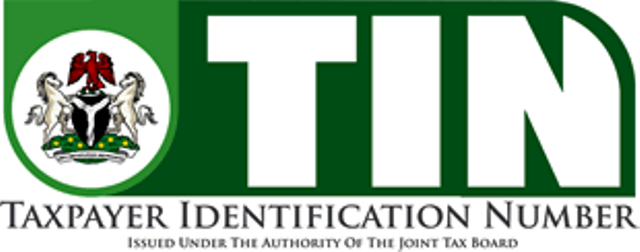Individuals, corporates can’t operate old or new accounts without TIN
By Jeph Ajobaju, Chief Copy Editor
Individuals and corporate entities will not be able to operate an existing bank account or open a new one without a Tax Identification Number (TIN) once the Finance Bill 2021 becomes law and becomes operational in January 2022.
The bill passed both First and Second Readings on Wednesday in the Senate where it is receiving priority attention based on the request President Muhammadu Buhari made in a letter to the Upper Chamber the previous day.
The bill makes it mandatory for banks to demand TIN from anyone to operate an existing account or open a new one.
Senate Leader Yahaya Abdullahi (APC, Kebbi North) disclosed this in his lead debate on the bill.
“Banks will be required to request for Tax Identification Number before opening bank accounts for individuals, while existing account holders must provide their TIN to continue operating their accounts,” he said, per The PUNCH and Tribune Online.
The bill makes electronic mail the only channel that tax authorities would accept as a formal means of correspondence with taxpayers.
__________________________________________________________________
Related articles:
Abuja blames high debt on firms dodging N7tr tax payment
NEITI to name 77 oil firms owing treasury N2.6tr tax
Solar power system to generate $10m yearly in import substitution
_________________________________________________________________
Penalty for late VAT filing increased
The conditions attached to tax exemption on gratuities are removed, so gratuities are unconditionally tax exempt.
“The duties currently performed by the Joint Tax Board [JTB] as relates to administering the Personal Income Tax Act, will now be performed by the Federal Inland Revenue Service [FIRS].
“This seems to be an error in the process of amendments to replace the word ‘Board’ as it appears in Federal Board of Inland Revenue.”
The bill increases penalty for Value Added Tax (VAT) late filing of returns.
“The penalty for failure to register for VAT is reviewed upwards to N50,000 for the first month of default and N25,000 for each subsequent month of default.
“The penalty for failure to notify Federal Inland Revenue Service (FIRS) of change in company address to be reviewed upwards to N50,000 for the first month of default and N25,000 for each subsequent month of default.
“This penalty also covers failure to notify FIRS of permanent cessation of trade or business.”
There is penalty for tax agents who default in their statutory functions.
“Penalty for failure to deduct tax will also apply to agents appointed for tax deduction. This penalty is 10 per cent of the tax not deducted, plus interest at the prevailing monetary policy rate of the Central Bank of Nigeria [CBN].”
Sweeping changes to tax laws
There is cheering news for pensioners.
“The proposed Bill seeks to remove the tax exemption on withdrawals from pension schemes except the prescribed conditions are met; Child relief (N2,500 per child up to a maximum of four) and dependent relief (N2,000 per dependent for a maximum of two) are to be deleted.
“Quite significantly, the Finance Bill seeks to introduce sweeping changes to the tax laws covering seven different tax laws.
“Many of the changes are expected to have positive impacts on investments and ease of paying taxes especially for MSMEs [Micro, Smal and Medium-Sized Enterprises].
“Going forward, we hope that changes to the tax laws will be on an annual basis to ensure that Nigeria’s tax system continues to evolve in line with economic conditions.”
On the Personal Income Tax Act, Abdullahi said the amendment clarifies that pension contributions no longer require the approval of the JTB to be tax-deductible.
“On the other hand, the bill seeks to remove the tax exemption on withdrawals from pension schemes except the prescribed conditions are met.”
Buhari wants to remove all conditions attached to tax exemption on gratuities and ultimately make it tax exempt.
The bill seeks to reduce budget deficits through clarity in policy reforms and execution, Abdullahi said.




